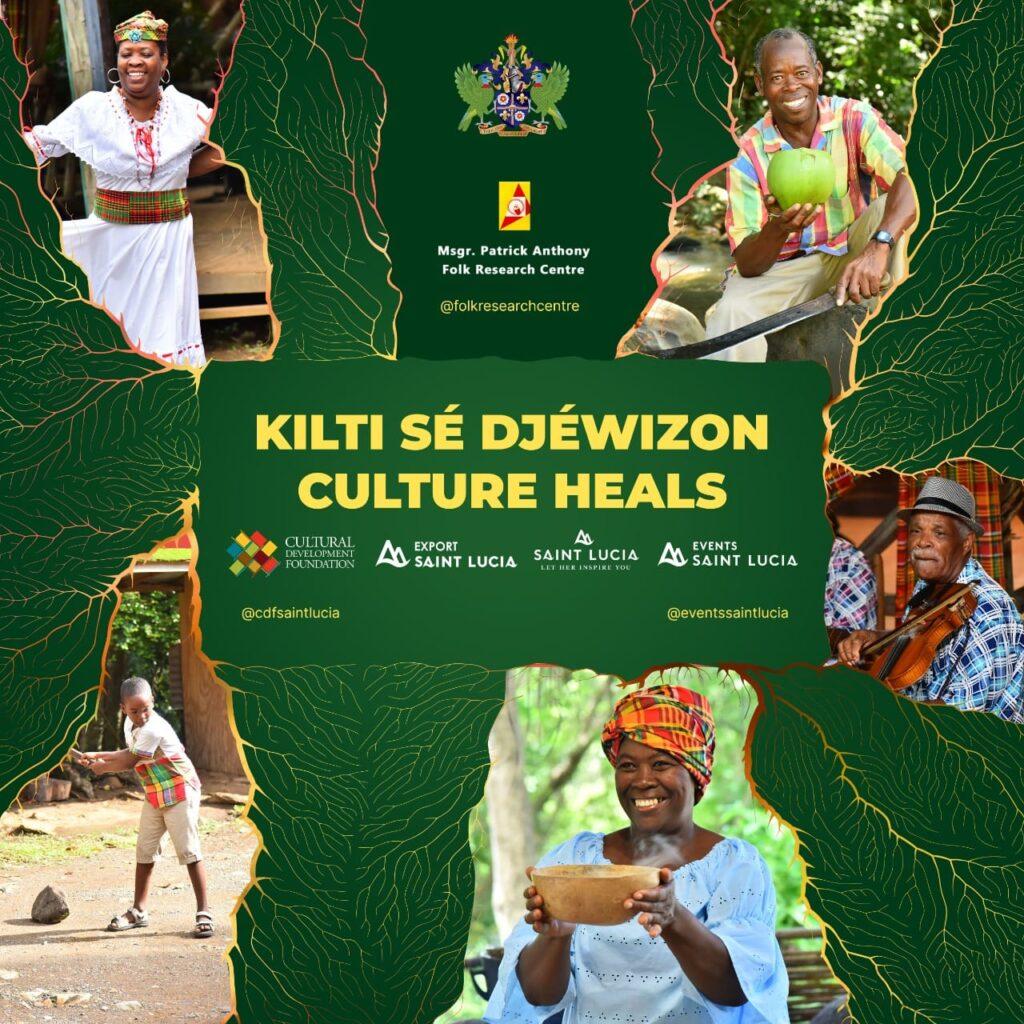JOUNEN kwéyòl

The Monsignor Patrick Anthony Folk Research Centre (FRC) was established for the advancement and preservation of Saint Lucian culture and heritage. Mwa Éwitaj Kwéyòl (Creole Heritage Month) is one of the major national cultural festivals created by the FRC through the inception of Jounen Kwéyòl to celebrate Saint Lucian tradition, Kwéyòl culture and language. Jounen Kwéyòl is the Saint Lucian celebration of International Creole Day, which was established in 1983 by a group of French-Creole Speaking islands globally, under the banner of the organization called Bannzil Kreyol. Saint Lucia was a founding member of Bannzil Kreyol. Since the inception of Jounen Kwéyòl in 1983 as a regional radio link-up, and thereafter as a community-based engagement in 1984, the aims have been to make the Saint Lucian society more aware of the strength and value of the Kwéyòl language and to assist in the understanding and development of its rich cultural resources.
Jounen Kwéyòl:
Jounen Kwéyòl is celebrated in Saint Lucia on the Sunday nearest to the international observance of World Creole Day, October 28th. It is the climax of a month-long celebration of varied aspects of Kwéyòl culture, which includes the Kwéyòl language, traditional practices, food and drink, dress, and technology among other aspects at a national level in Host Communities and throughout the state.
Jounen Kwéyòl Charter and Mission Statement
Jounen Kwéyòl aims to make Saint Lucian Society aware of the strength and value of the Kwéyòl language and to assist in the understanding and development of its rich cultural resources.
Jounen Kwéyòl:
- Helps communities discover collectively and share in their rich cultural heritage. • Brings communities together irrespective of colour, creed, class or partisan affiliation, to address issues of culture and community development.
- Mobilises communities to collectively utilize cultural resources for economic development in an environment free from selfishness and greed.
- Utilises both the traditional wisdom of communities and the learning from formal institutions to stimulate a positive and wholesome educational experience.
- Develops the confidence of the vast number of Saint Lucian persons, whose principal means of communication and expression is in the use of the Kwéyòl language.
Mwa Éwitaj Kwéyòl
Mwa Éwitaj Kwéyòl is a month-long celebration of Kwéyòl and culture which takes place throughout October every year in Saint Lucia. It is a national celebration that takes place in communities, schools, business places, churches, government and non-governmental organisations in varied formats.
The Group of Countries are:
- Saint Lucia
- Commonwealth of Dominica
- Martinique
- Guadeloupe
- Haiti
- Guyanne (French Guyana/Cayenne)
- Seychelles
- Mauritius
- Reunion
The celebration of Jounen Kwéyòl (Creole Day) in Saint. Lucia has developed since its inception in 1984 into the biggest national cultural activity in Saint. Lucia. Indeed, Jounen Kwéyòl has a broader impact across communities and social sectors than any other calendar event in Saint. Lucia. Every year, Jounen Kwéyòl is celebrated in Creole Speaking countries to increase the awareness and pride among Creole-speaking people of their rich cultural heritage; to encourage the practice of the Creole Language and Culture, and to encourage solidarity among Creole-speaking communities around the world.
The survival and growth of the event have undoubtedly contributed to a tremendous development in national awareness and pride in Saint. Lucia’s cultural heritage and greater self-confidence in Saint. Lucians at home and all over the world. Jounen Kwéyòl activities spread economic,
educational, and cultural benefits across all social sectors, particularly at the grass roots level of many traditionally marginalized local communities. In recent years Jounen Kwéyòl has also become a tourist attraction for lovers of folk culture, particularly from the French Antilles and other neighboring Caribbean territories. Clearly, the event has become such an important resource for national development that broad national support is imperative to ensure its sustainability. The event has grown into what is the biggest national cultural festival in Saint. Lucia.